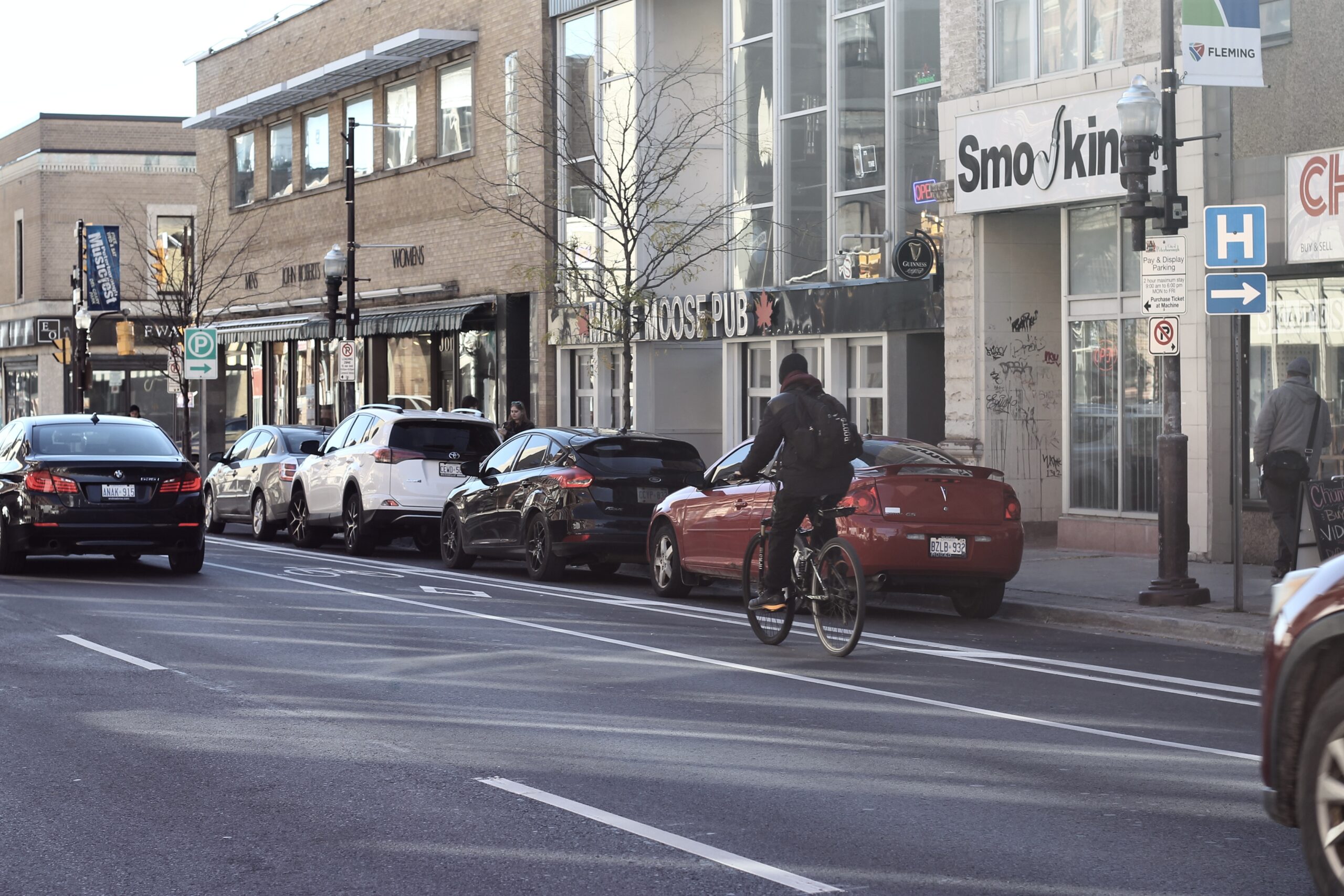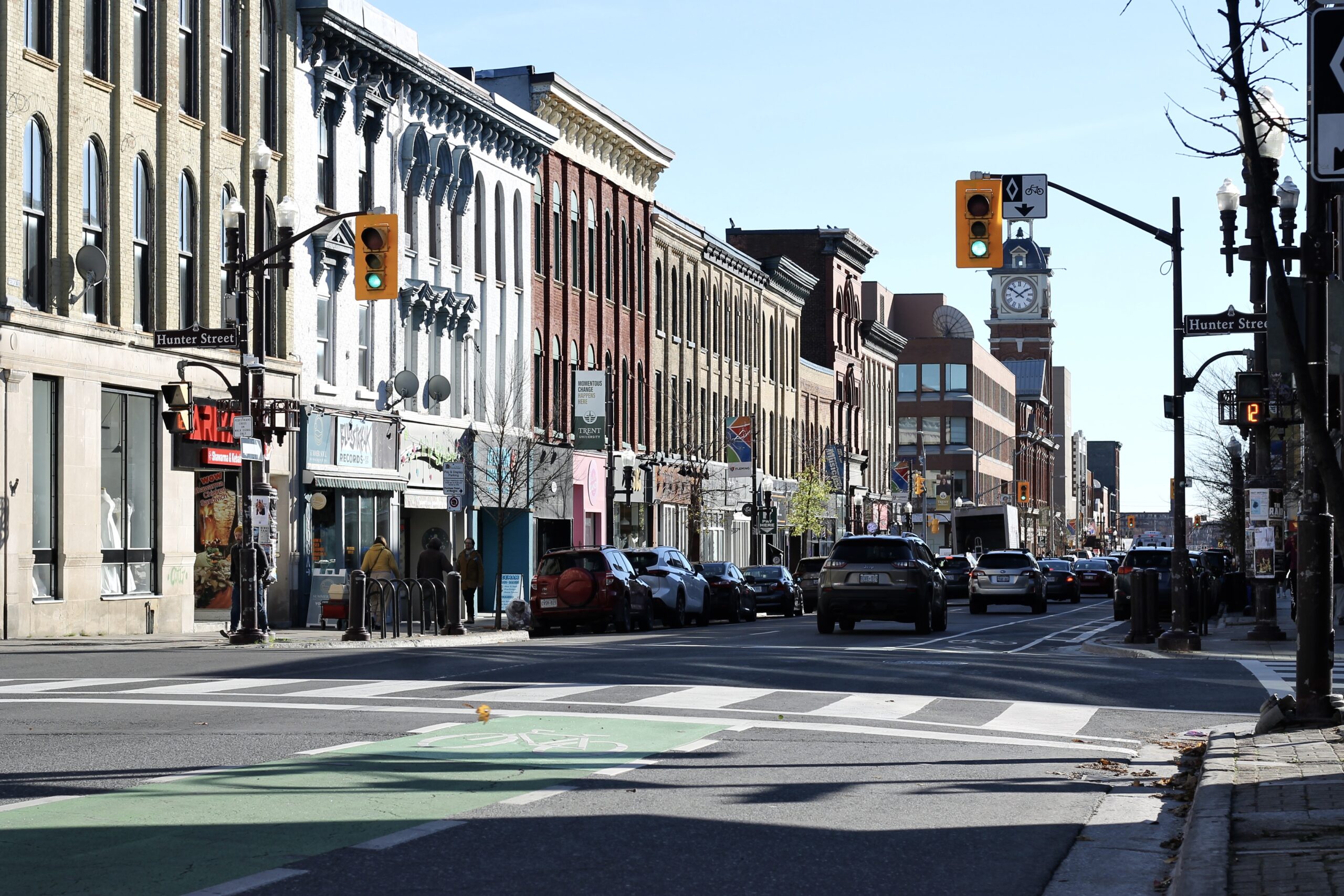
Celebrating 7 years of The Narwhal — and gearing up for the next 7
Between a fresh take on engagement and our new life on video, our team is...
I started working for cities at the age of 24, first in recycling and then in sustainable transportation. I kept at it for 32 years, loving the intimacy of working directly with a community — learning what they need and then seeing projects that improve the city come to life.
Most recently, I worked in transportation for the City of Peterborough. Along with other city staff and community partners, we built a network of much-loved multi-use trails, bike lanes, work from home policies (it was a hard sell in 2010) and other initiatives to help people in this small city northeast of Toronto get where they need to go.
The Ontario government’s Bill 212, the Reducing Gridlock, Saving You Time Act, appears to do the opposite. It proposes to limit bike lane construction where a lane of traffic or parking will be impacted and empowers the province to remove existing bike lanes from city streets.
As someone who understands what it takes to put active transportation plans together and implement projects at the municipal level, I am shaking my head. Not least because Bill 212 would have jeopardized my two favourite projects had it been in place — and maybe it still will.


In 2016, the City of Peterborough transformed the main throughway south of downtown, George Street, from a hostile-feeling, four-lane road with a high rate of collisions to a two-lane street with left turn lanes, flanked by bike lanes. There was community consensus on the project, including among business owners along the busy street who wanted to see change due to the frequent vehicle collisions they witnessed. The new road design is safer for people, whether they’re walking, cycling or driving.
The other project that would have been unlikely to pass muster under Premier Doug Ford’s latest bill is the redevelopment of Bethune Street. This collector street downtown, formerly home to industries, is now lined with a mix of homes, parks, offices and empty lots. It has much lower vehicle volumes than George Street. After it was dug up for a flood prevention project in 2021, the city remodelled it as a bicycle priority street. Cars are permitted on most blocks, but not all, and the narrow street design encourages low travel speed conducive to bicycles and vehicles sharing the same space with comfort, including for young families.
Bethune Street has become a destination to explore and a quiet route, from north to south, across the city’s downtown core. The east-west bike lane route that would connect Bethune and George, and the rest of downtown, is meant to be installed next year along Charlotte Street. The project is laid out in the city’s Transportation Master Plan, but Bill 212 could put it at risk.
Bill 212 sets an unwelcome precedent in provincial overreach and is thwarting efforts to make streets safer. Safe streets are not a partisan issue; we all stand for safe streets, yet the bill flies in the face of municipal efforts to address injury and death rates on our roads.
This legislation would make it significantly more time consuming, expensive and difficult for our community to implement new cycling infrastructure and other road safety measures, like we have on George and Bethune streets.
The Peterborough Bicycle Advisory Committee that I chair believes the proposed regulations would put a significant chill on progress being made in Peterborough, and across the province, to improve the safety and travel times for all road users. If the Ontario government were serious about reducing congestion, it would implement high-occupancy vehicle lanes on all busy highways and take other proven steps to address congestion.
Should it pass, Bill 212 threatens to set Ontario back years in creating livable, healthy and economically and environmentally sustainable communities. Time and again, cities see investment and tax revenue increase when we convert our streets to spaces people enjoy visiting — rather than just driving down.
Coupled with poor support from the province for active transportation infrastructure, Bill 212 will paralyze municipalities’ ability to implement the cycling and transportation plans they have developed through extensive community consultation.
The $2.4-million project to reduce George Street’s driving lanes and make it safer for all users was funded with $1.2 million from the federal Gas Tax Fund, $325,000 from the Ontario Municipal Commuter Cycling Infrastructure Program and $900,000 from the City of Peterborough. The city is struggling to keep its tax increase under 10 per cent and unable to implement important road safety projects in its latest budget.
The Ford government is giving the City of Peterborough $9.5 million for road repairs and upgrades in 2025, including for the Charlotte Street project that would connect George and Bethune streets. Now, that money may be contingent on dropping the planned bike lanes.
In the meantime, the province will spend $3 billion to give each of us $200 in early 2025, and has been losing $1.1 billion annually since 2022 after removing licensing fees for vehicles. If that money were instead poured into much needed municipal projects, our communities could not only be improving our transportation systems but addressing other critical needs, such as housing.
Get the inside scoop on The Narwhal’s environment and climate reporting by signing up for our free newsletter. On a warm September evening nearly 15...
Continue reading
Between a fresh take on engagement and our new life on video, our team is...

The public has a few days left to comment on Doug Ford’s omnibus development bill....

115 billion litres, 70 years to fix, $5.5 billion in lawsuits
